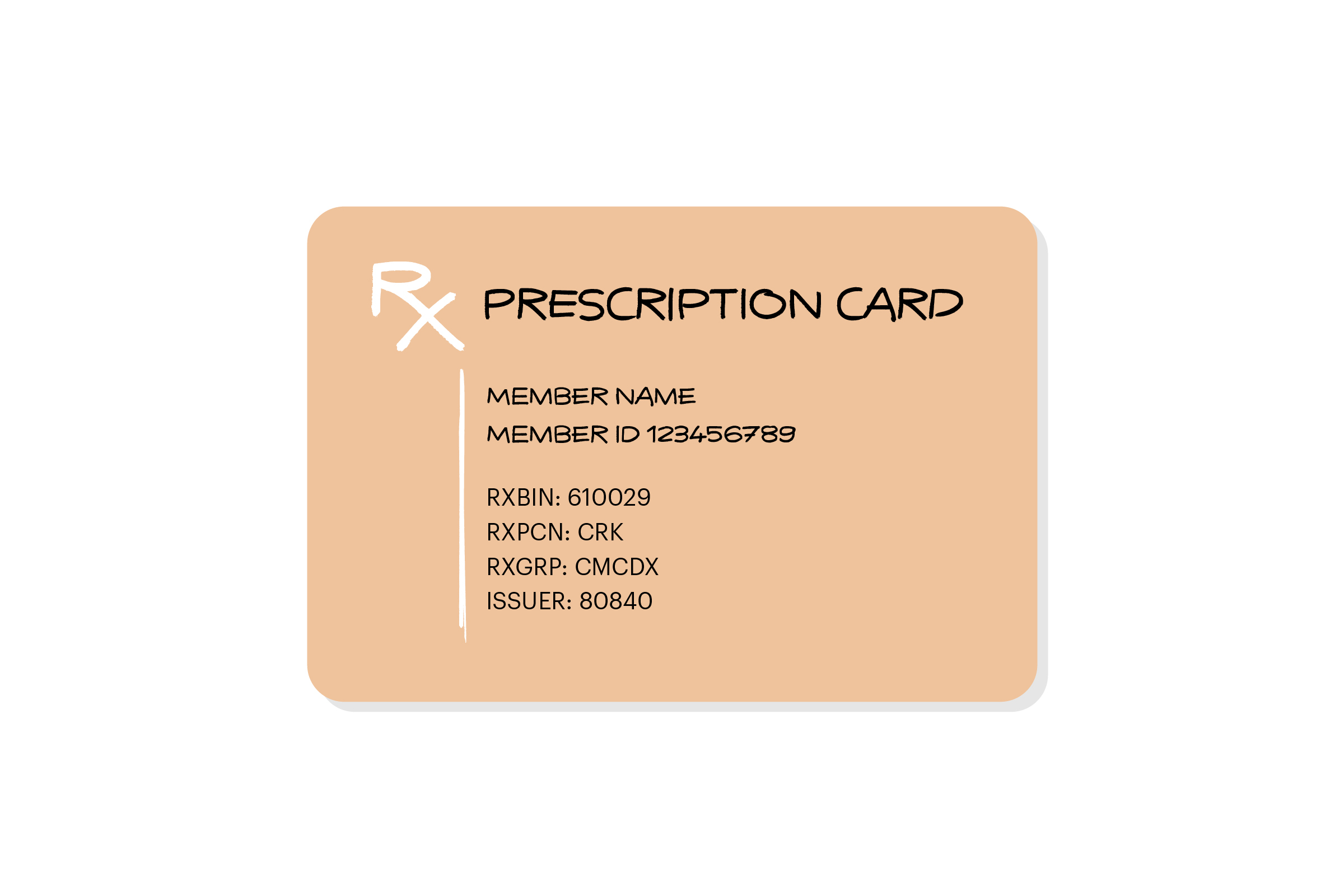

Finance
How To Find A Rental House With Bad Credit
Published: January 5, 2024
Looking to find a rental house despite having bad credit? Our finance experts provide tips and strategies to help you secure the perfect home.
(Many of the links in this article redirect to a specific reviewed product. Your purchase of these products through affiliate links helps to generate commission for LiveWell, at no extra cost. Learn more)
Table of Contents
- Introduction
- Understanding the Impact of Bad Credit on Rental Applications
- Preparing Your Rental Application with Bad Credit
- Building your Credit Score Before Applying for a Rental House
- Exploring Alternative Rental Options with Bad Credit
- Utilizing Rental Assistance Programs for Individuals with Bad Credit
- Negotiating with Landlords and Providing Additional Documentation
- Securing a Co-Signer for Your Rental Application
- Working with a Rental Agent to Find Housing with Bad Credit
- Conclusion
Introduction
Finding a rental house can be challenging, especially if you have a bad credit history. Landlords often rely on credit scores as a way to evaluate potential tenants and determine their level of financial responsibility. However, having bad credit does not mean that you are out of options when it comes to finding a rental property.
In this article, we will explore various strategies and alternative options that can help you secure a rental house, even if your credit is less than perfect. We will discuss methods for preparing your rental application, building your credit score, exploring alternative rental options, utilizing rental assistance programs, negotiating with landlords, securing a co-signer, and working with a rental agent.
It’s important to remember that everyone deserves a safe and comfortable place to call home, regardless of their credit history. By following the tips and strategies outlined in this article, you can increase your chances of finding a rental house that suits your needs, even with bad credit.
Understanding the Impact of Bad Credit on Rental Applications
Having a bad credit history can have a significant impact on your ability to secure a rental house. Landlords often view a low credit score as a red flag, as it may indicate a history of financial irresponsibility or an inability to pay rent on time. Therefore, it is crucial to understand how your credit history can affect your rental applications.
Firstly, landlords typically run credit checks on potential tenants to assess their financial stability. A low credit score may raise concerns and make landlords hesitant to offer you a rental property. They may worry that you will be unable to meet your monthly rent obligations or that you may pose a higher risk for property damage.
Secondly, a bad credit history can also impact your chances of getting approved for a rental property. Landlords often have several applicants for a single property, and they prioritize those with good credit scores. If you have bad credit, you may find yourself constantly competing with other applicants who have stronger credit profiles.
Furthermore, landlords may ask for a higher security deposit or require a co-signer if your credit is less than ideal. This is because they want to mitigate the financial risk associated with renting to someone with a history of credit issues. These additional requirements can make the rental process more challenging and potentially limit your options.
It’s essential to be aware of the potential impact of bad credit on your rental applications. However, it’s important to note that not all landlords solely base their decision on credit scores. Some may take other factors into consideration, such as your income, rental references, or explanations for past credit issues.
In the next sections of this article, we will discuss strategies to improve your chances of securing a rental house, even with bad credit. By following these tips, you can navigate the rental market more effectively and increase your chances of finding a suitable home.
Preparing Your Rental Application with Bad Credit
When you have bad credit, it’s important to put extra effort into preparing your rental application to make it more appealing to landlords. Here are some steps you can take to strengthen your application.
1. Gather supporting documents: Along with your standard rental application, include additional documentation that can demonstrate your financial stability and reliability. This could include pay stubs, bank statements, letters of recommendation from previous landlords, or proof of consistent employment. Providing these documents can help highlight your financial responsibility and show that you are capable of paying rent on time.
2. Offer a larger security deposit: Consider offering a larger security deposit to alleviate landlords’ concerns about your credit history. By increasing the amount of money held as security, you demonstrate your commitment to taking care of the property and meeting your financial obligations.
3. Provide a personal statement: Write a personal statement explaining the circumstances surrounding your bad credit. Be transparent and honest about any financial hardships you may have faced and share how you have taken steps to improve your situation. This can help landlords understand your situation better and may elicit empathy.
4. Offer to set up automatic rent payments: By setting up automatic rent payments, you show landlords that you are committed to paying on time and reduce the risk of missed or late payments. This arrangement provides an additional layer of reassurance and can help alleviate concerns about your credit history.
5. Get a co-signer: If you have difficulty securing a rental house on your own, you may consider finding a co-signer. A co-signer with a good credit history can strengthen your application and give landlords more confidence in renting to you. Keep in mind that a co-signer becomes financially responsible for the lease if you fail to meet the rental obligations.
6. Be prepared to negotiate: If a landlord expresses concerns about your credit, be prepared to have a conversation and negotiate terms. You may offer to pay a higher monthly rent or agree to a shorter lease term to address their concerns. Showing flexibility and a willingness to work with the landlord can help build trust and increase your chances of being approved.
Remember, while bad credit may pose additional challenges, it does not necessarily mean you are automatically excluded from finding a rental house. By taking these steps and presenting yourself in the best possible light, you can improve your chances of finding a suitable rental property.
Building your Credit Score Before Applying for a Rental House
If you have bad credit and are planning to apply for a rental house, taking steps to improve your credit score can significantly increase your chances of approval. Here are some strategies to help you build your credit before applying.
1. Check your credit report: Start by obtaining a copy of your credit report from one of the major credit bureaus. Review it carefully to identify any errors or discrepancies that may be negatively impacting your score. If you find any inaccuracies, make sure to dispute them and have them corrected.
2. Pay your bills on time: Consistently paying your bills on time is one of the most effective ways to improve your credit score. Set up automatic payments or reminders to ensure you never miss a payment. Over time, this responsible behavior will demonstrate your reliability to potential landlords.
3. Reduce your debt: High levels of debt can negatively affect your credit score. Make a plan to reduce your debt by paying off outstanding balances or negotiating payment plans with creditors. Focus on paying down credit cards and other revolving debt to lower your credit utilization ratio.
4. Build a positive credit history: If you have limited or no credit history, consider opening a secured credit card or becoming an authorized user on someone else’s credit card. Use these accounts responsibly, making small purchases and paying them off in full each month. This will help establish a positive payment history.
5. Keep credit card balances low: Aim to keep your credit card utilization below 30% of your available credit limit. High credit card balances can negatively impact your credit score. Paying down your debt and keeping balances low will demonstrate responsible credit management.
6. Avoid opening new accounts: While it can be tempting to open new credit accounts to improve your credit mix, doing so can temporarily lower your credit score. Focus on managing your existing accounts and building a positive payment history before considering opening new credit lines.
7. Be patient: Building your credit takes time and consistency. It’s essential to be patient and stay committed to good credit habits. As you take steps to improve your credit, your score will gradually increase, making you a more attractive candidate for rental applications.
By proactively working on improving your credit score before applying for a rental house, you can demonstrate financial responsibility and increase your chances of being approved. Remember that building credit is a long-term process, and the positive impacts will extend beyond just securing a rental property.
Exploring Alternative Rental Options with Bad Credit
If you have bad credit and are having difficulty getting approved for a traditional rental house, don’t despair. There are alternative rental options available that may be more lenient when it comes to credit history. Here are a few options to consider:
1. Rent from individual landlords or small rental companies: Larger property management companies often have strict credit requirements. On the other hand, individual landlords or small rental companies may be more willing to work with tenants who have less-than-perfect credit. They may be more inclined to consider other factors such as rental references, employment history, or personal interviews.
2. Look for rental properties with less competition: Consider exploring rental properties in areas with lower demand or more vacancies. These properties may be more flexible with their application requirements and less likely to have multiple applicants. Research neighborhoods or areas that have a higher inventory of rental properties to increase your chances of finding an option that suits your needs.
3. Rent a room or sublet: If you’re open to sharing a living space, renting a room or subletting from someone who already has a lease can be a viable option. In these cases, the primary tenant may be the one responsible for the lease application, making your credit history less of a concern for the landlord.
4. Consider renting from private homeowners: Some homeowners choose to rent out their properties directly instead of going through property management companies. Engaging with these private homeowners can offer more flexibility and understanding when it comes to credit history. They may be more willing to consider individual circumstances and factors other than credit scores.
5. Offer a larger security deposit: A larger security deposit can provide landlords with an added layer of security and confidence in renting to tenants with bad credit. By offering a higher deposit, you show your commitment to taking care of the property and meeting your financial obligations.
6. Share a rental with a roommate: Sharing a rental with a roommate can help alleviate concerns about your credit history. Landlords may be more lenient when multiple people are sharing the financial responsibility. Additionally, having a roommate with a strong credit history can strengthen your rental application.
7. Seek housing assistance programs: Explore housing assistance programs that cater to individuals with bad credit or other financial hardships. These programs often have different criteria for eligibility and can provide options for more affordable housing.
Remember to be upfront and honest about your credit history when exploring alternative rental options. Explain any extenuating circumstances that may have contributed to your bad credit and highlight any steps you have taken to improve your financial situation. Building a personal connection and demonstrating your commitment to responsible tenancy can go a long way in securing an alternative rental option.
Utilizing Rental Assistance Programs for Individuals with Bad Credit
If you have bad credit and are struggling to secure a rental house, exploring rental assistance programs can offer a solution. These programs are designed to provide financial support and resources for individuals who may face challenges in finding suitable housing due to their credit history. Here are some rental assistance options to consider:
1. Section 8 Housing Choice Voucher Program: The Section 8 program, administered by the U.S. Department of Housing and Urban Development (HUD), provides rental assistance to low-income individuals and families. Eligible participants are issued vouchers that cover a portion of their rent, enabling them to afford housing that would otherwise be out of reach.
2. State and local housing authorities: Many state and local governments offer rental assistance programs specifically aimed at individuals with low income or bad credit. These programs vary by location, but they may provide rental subsidies, housing vouchers, or access to affordable housing options.
3. Non-profit organizations: There are non-profit organizations that specialize in providing rental assistance and support services to individuals and families with low income or bad credit. These organizations can connect you with resources, financial aid, and various programs that help you secure affordable housing.
4. Transitional housing programs: Transitional housing programs are designed to help individuals who are experiencing temporary housing instability. These programs often offer support services, counseling, and rental assistance to help individuals transition from unstable housing situations to more permanent housing options.
5. Rental subsidies for specific demographics: Some rental assistance programs are specifically designed to support specific demographics, such as veterans, seniors, or individuals with disabilities. These programs provide financial support and resources tailored to the needs of these individuals, making it easier for them to secure suitable housing options.
6. Homelessness prevention programs: Homelessness prevention programs aim to assist individuals and families who are at risk of becoming homeless due to financial hardship or bad credit. These programs offer financial aid, supportive services, and counseling to help individuals maintain their housing stability.
When considering rental assistance programs, it’s important to research and understand the eligibility criteria, application process, and available resources. Reach out to local housing authorities, non-profit organizations, or HUD offices to inquire about the programs and assistance options available in your area. They can guide you through the application process and provide the necessary information to help you secure suitable housing with your bad credit history.
Negotiating with Landlords and Providing Additional Documentation
When you have bad credit and are applying for a rental house, it’s important to understand that you still have options to increase your chances of approval. One effective strategy is to negotiate with landlords and provide additional documentation that showcases your reliability and financial stability. Here are some tips for negotiating and providing supplemental information:
1. Communicate openly: Reach out to the landlord or property manager and have an open and honest conversation about your credit history. Explain any extenuating circumstances that led to your bad credit and highlight any steps you have taken to improve your financial situation. Transparency can go a long way in building trust with the landlord.
2. Offer to pay a larger security deposit: Assure the landlord that you are committed to fulfilling your rental obligations by offering to pay a larger security deposit. This can serve as a form of reassurance, alleviating any concerns they may have about your credit history.
3. Provide rental references: If you have a positive rental history from previous landlords, ask if they would be willing to provide references on your behalf. A glowing recommendation can help counterbalance any concerns about your credit score.
4. Provide proof of stable employment and income: Demonstrating steady employment and a reliable income can help reassure landlords of your ability to pay rent on time. Provide recent pay stubs or employment verification letters to showcase your financial stability.
5. Offer to sign a shorter lease term: Consider offering to sign a shorter lease term as a way to ease the landlord’s concerns. This allows them to re-evaluate your tenancy in a shorter timeframe and may make them more willing to take a chance on you despite your bad credit.
6. Get a co-signer or guarantor: If possible, have a family member or friend with good credit act as a co-signer or guarantor for your rental application. This person agrees to be financially responsible for the lease if you are unable to meet your obligations, providing the landlord with an added layer of security.
7. Provide proof of on-time bill payments: Compile documentation that shows your track record of making on-time payments for other financial obligations, such as utility bills or car payments. This can showcase your commitment to meeting your financial responsibilities despite past credit issues.
8. Write a personal statement: Craft a persuasive personal statement that explains your financial hardships and outlines your plans for maintaining stable housing. Include any steps you have taken or are currently taking to improve your credit and financial situation. This statement can help humanize your application and show landlords your dedication to overcoming past challenges.
Negotiating with landlords and providing additional documentation can help you stand out as a responsible and reliable tenant, even with bad credit. Remember, the goal is to demonstrate your commitment to meeting your rental obligations and alleviating any concerns the landlord may have regarding your credit history.
Securing a Co-Signer for Your Rental Application
If you have bad credit and are struggling to secure a rental house on your own, one solution is to enlist the help of a co-signer. A co-signer is someone with good credit who agrees to be responsible for the lease if you fail to meet your rental obligations. Here are some tips for securing a co-signer for your rental application:
1. Choose a trustworthy co-signer: Look for a co-signer who has a strong credit history and a good relationship with you. Ideally, this should be someone who understands your financial situation and is willing to support you throughout the duration of the lease.
2. Approach family or close friends: Start by approaching family members or close friends who may be willing to act as your co-signer. These individuals are more likely to understand your circumstances and be willing to help you secure a rental property.
3. Explain the co-signer’s responsibilities: Make sure your potential co-signer fully understands their role and responsibilities. They are taking on a significant financial obligation by co-signing on the lease, so it’s important to have an open and honest conversation about what this entails.
4. Provide reassurance: Assure your co-signer that you are actively working to improve your credit and financial situation. Share any steps you have taken to address your past credit issues and demonstrate your commitment to meeting your rental obligations moving forward.
5. Offer incentives: To make the arrangement more appealing, consider offering your co-signer an incentive. This could be a reduction in their financial responsibility after a certain period of time or a gesture of gratitude, such as covering any co-signing fees.
6. Keep communication open: Maintain open and frequent communication with your co-signer throughout the rental period. Keep them informed of any changes in your financial situation and ensure they are aware of rent due dates and other important information regarding the lease.
7. Plan for a future without a co-signer: While having a co-signer can help you secure a rental house with bad credit, it’s essential to have a plan to eventually stand on your own. Use the opportunity to improve your credit, build a positive rental history, and work towards becoming financially independent.
8. Show gratitude and appreciation: Express your gratitude to your co-signer for their support and assistance. Acknowledge the trust they have placed in you and make sure to fulfill your rental obligations to maintain their confidence in you.
Remember that having a co-signer is a serious commitment for both parties involved. It’s important to have a clear understanding of expectations and responsibilities before moving forward. By securing a co-signer, you can increase your chances of being approved for a rental house while taking steps towards rebuilding your credit.
Working with a Rental Agent to Find Housing with Bad Credit
When you have bad credit and are struggling to secure a rental house on your own, working with a rental agent can be a valuable resource. A rental agent specializes in helping individuals find suitable housing options, and they have in-depth knowledge of the rental market. Here are some ways a rental agent can assist you in finding housing despite your bad credit:
1. Access to a wide range of listings: Rental agents have access to a vast network of listings, including properties that may not be widely advertised. They can tap into their connections and resources to find housing options that are more lenient with credit requirements.
2. Advocacy and representation: A rental agent can act as your advocate and represent your best interests during the rental process. They can negotiate with landlords on your behalf, highlighting your strengths and addressing any concerns about your credit history. Their expertise can help overcome some of the barriers you may face as an individual with bad credit.
3. Knowledge of alternative options: Rental agents are familiar with alternative housing options that may be more flexible with credit history. They can guide you towards rental properties and programs that cater specifically to individuals with bad credit or those who may have faced financial challenges in the past.
4. Guidance on rental application preparation: A rental agent can provide guidance on how to strengthen your rental application despite your bad credit. They can advise you on the additional documentation you may need to gather, such as supporting financial records or personal references, to present a more compelling case to landlords.
5. Assistance with lease negotiations: If you are concerned about specific lease terms, a rental agent can help negotiate on your behalf. They can work with the landlord to find mutually agreeable solutions, such as adjusting the lease term or addressing concerns related to your credit history.
6. Expertise in market conditions: Rental agents have a deep understanding of the rental market, including trends and pricing. They can guide you towards areas or neighborhoods where housing options may be more affordable and where landlords may be more willing to overlook bad credit in favor of other qualifications.
7. Ongoing support: A rental agent can provide ongoing support throughout your tenancy. They can assist with lease renewals, handle maintenance requests, and act as a liaison between you and the landlord. Having someone on your side who understands your unique situation can provide peace of mind and make the rental process smoother.
Working with a rental agent can be a worthwhile investment when you have bad credit. Their expertise, resources, and network can increase your chances of finding suitable housing options that are willing to work with your credit history. Remember to openly communicate your credit situation with your rental agent to ensure they can best assist you in your search.
Conclusion
Having bad credit can make finding a rental house more challenging, but it doesn’t mean that you are without options. By following the strategies and tips outlined in this article, you can increase your chances of securing a rental property despite your credit history.
Start by understanding the impact of bad credit on rental applications and preparing your rental application with supporting documentation that showcases your financial stability and responsibility. Take steps to improve your credit score before applying for a rental house, such as paying bills on time, reducing debt, and building a positive credit history.
Explore alternative rental options, including renting from individual landlords, looking for properties with less competition, or considering shared rentals or sublets. Utilize rental assistance programs specifically designed to support individuals with bad credit and consider negotiating with landlords by offering a larger security deposit or providing additional documentation.
If necessary, secure a co-signer who has good credit to strengthen your rental application and provide reassurance to landlords. And consider working with a rental agent who can leverage their knowledge, resources, and market expertise to help you find suitable housing options.
Remember, the journey to finding a rental house with bad credit may require patience, persistence, and creative solutions. Be open and honest about your credit history, demonstrate your commitment to financial responsibility, and highlight any steps you have taken or are taking to improve your situation.
Everyone deserves a safe and comfortable place to call home, regardless of their credit history. By using the strategies outlined in this article and exploring the various options available, you can increase your chances of finding a rental house that meets your needs and sets you on a path towards achieving your housing goals.














